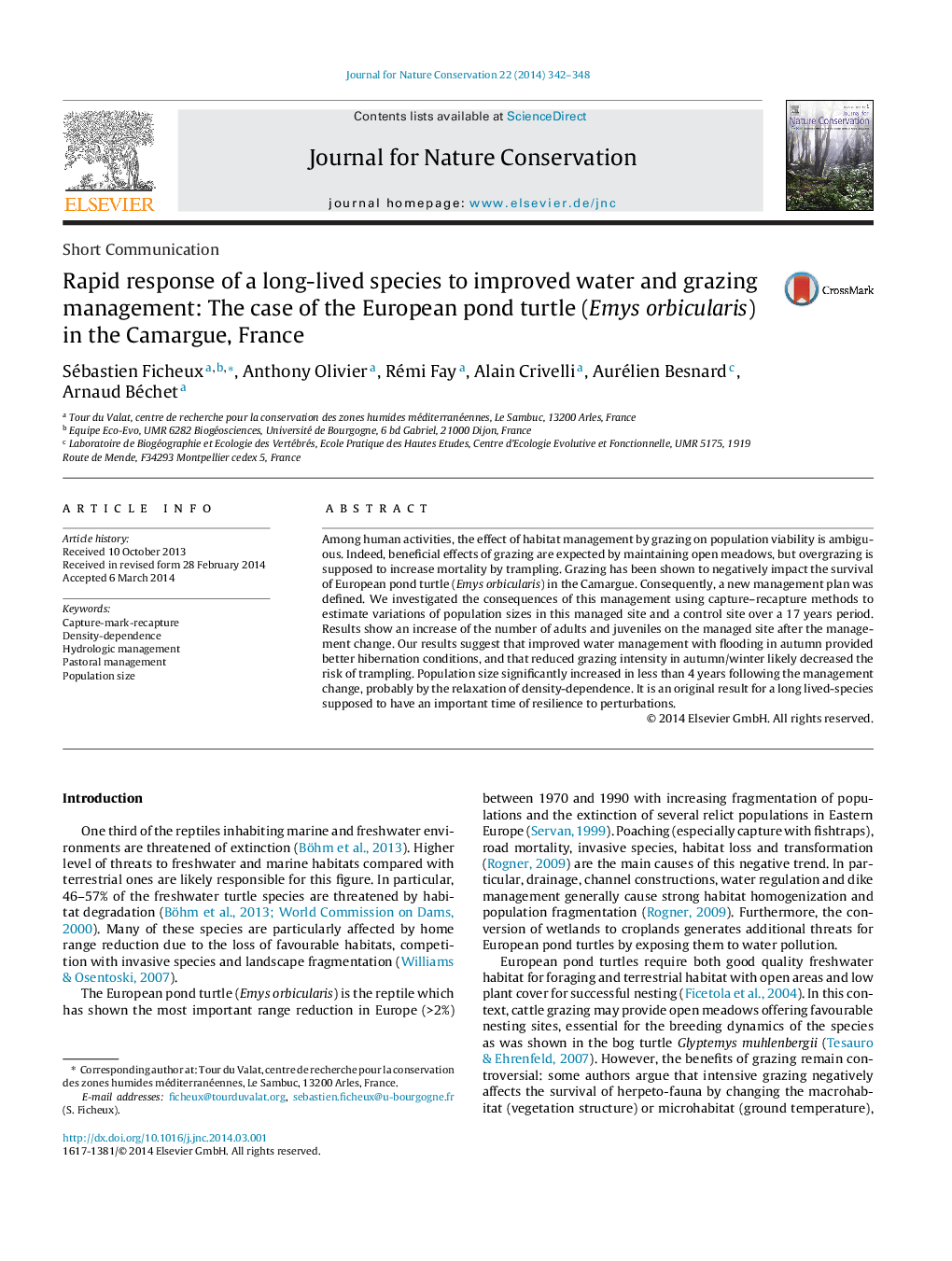| Article ID | Journal | Published Year | Pages | File Type |
|---|---|---|---|---|
| 4399869 | Journal for Nature Conservation | 2014 | 7 Pages |
Abstract
Among human activities, the effect of habitat management by grazing on population viability is ambiguous. Indeed, beneficial effects of grazing are expected by maintaining open meadows, but overgrazing is supposed to increase mortality by trampling. Grazing has been shown to negatively impact the survival of European pond turtle (Emys orbicularis) in the Camargue. Consequently, a new management plan was defined. We investigated the consequences of this management using capture-recapture methods to estimate variations of population sizes in this managed site and a control site over a 17 years period. Results show an increase of the number of adults and juveniles on the managed site after the management change. Our results suggest that improved water management with flooding in autumn provided better hibernation conditions, and that reduced grazing intensity in autumn/winter likely decreased the risk of trampling. Population size significantly increased in less than 4 years following the management change, probably by the relaxation of density-dependence. It is an original result for a long lived-species supposed to have an important time of resilience to perturbations.
Related Topics
Physical Sciences and Engineering
Earth and Planetary Sciences
Earth and Planetary Sciences (General)
Authors
Sébastien Ficheux, Anthony Olivier, Rémi Fay, Alain Crivelli, Aurélien Besnard, Arnaud Béchet,
